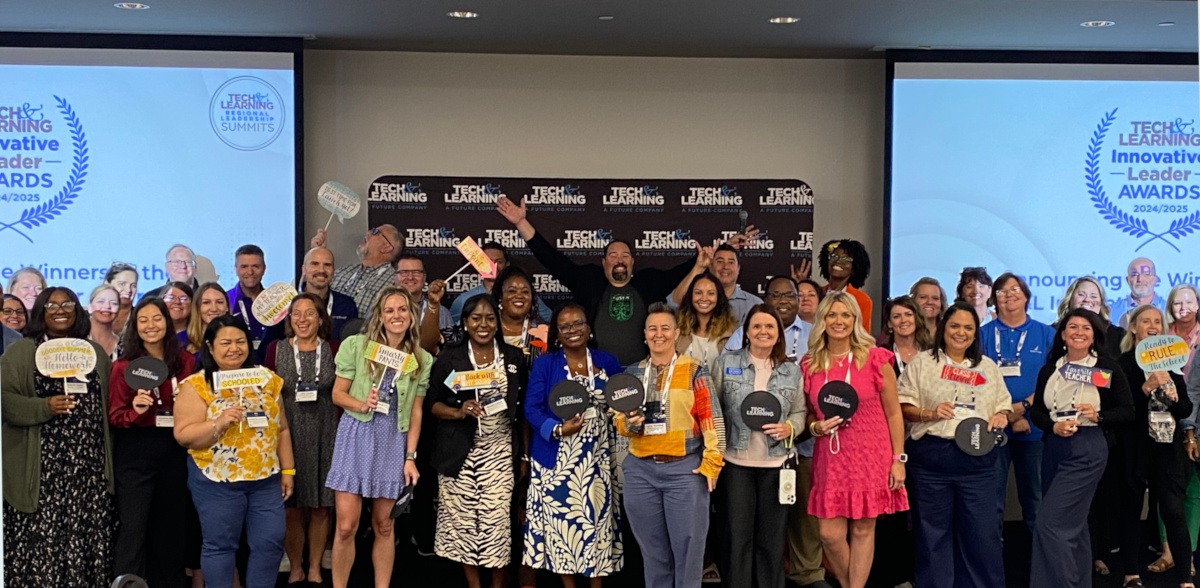4 AI Tools For Education That Are Nothing Like ChatGPT
These AI tools can help you find academic papers, debunk conspiracies, and more.

Many AI tools available for education are often slightly modified versions of ChatGPT. These tend to have the same chatbot interface as well as many of the common strengths and weaknesses.
I’m finding more and more, however, that the AI tools I'm most interested in seem to have more immediate educational potential and are nothing like ChatGPT. Instead these use AI in one specific way to accomplish a specific task.
Here are some of the tools I find either the most useful currently or most intriguing. While not all these tools are ready for primetime in the classroom, these all fill an unusual niche I haven’t been able to duplicate with ChatGPT or other better-known AI chatbots.
1. STORM
Elizabeth Radday, Ed.D. Director of Research & Innovation at EdAdvance in Connecticut, told me a few weeks ago about STORM, a generative AI tool developed by Stanford University. I haven’t stopped playing with it since.
Geared toward academics, the tool quickly creates a high-level academic chapter on any research topic, complete with real citations. I’ve typed in topics I’m writing about or interested in, such as flipped learning, the multiverse, and the history of Christmas trees. In each case, within a couple of minutes, it provided a detailed overview of the topic that read like my own personalized and hyper-specific Wikipedia page. This serves as a good research stepping stone, and could be helpful for educators in the process of obtaining their own advanced degrees. It could also provide help for more advanced students conducting research.
Radday notes that STORM basically accomplishes in a few minutes what took her months to accomplish while she was working on her doctoral thesis. She worries, as I do, that something will be lost by cutting out all that research time, but it’s hard to argue with the convenience of this tool, which is the best I've found for gathering academic sources on a topic quickly.
2. Character.AI
I'm told Character.AI is popular with high school and college students, and it’s not hard to see why. Unlike so many AI tools, Character.AI is designed with fun in mind. It lets you create characters from existing TV shows and movies, or even develop your own. Then it allows you to have real conversations with each one. Sure, Gandalf The Grey’s advice for me was kind of trite and generic, but it was more fun than talking with an emotionless ChatGPT.
Tools and ideas to transform education. Sign up below.
The potential is there to have students talk with historical figures as well as science icons, and engage with various topics in creative ways. That said, the tool doesn’t yet have the proper education safeguards in place, so isn't one I'd recommend using with students yet. But expect to here more about this tool in the near future.
Character.AI was founded by Noam Shazeer after he left Google, which was so impressed with the new app that they paid billions to get Shazeer to return.
3. DebunkBot
Fake news and conspiracy thinking seems more widespread today than at any point in my lifetime. DebunkBot is a conspiracy-debunking AI tool designed by researchers at MIT and elsewhere to get people to think critically about their beliefs through dialogue.
After my initial testing with the tool I was bit skeptical, but as I explored DebunkBot more, I became increasingly impressed. I’m still thinking about a conversation I had with it about the limits of Occam’s Razor.
I plan on using this tool with my journalism students as a way of helping them question official narratives but also avoid falling down “nothing is true" rabbit holes. It’s also a tool that seems to lend itself well to many lessons from science to history.
4. Otter.AI
I’m sometimes critical of AI and all the hype around it, but there's some tools I've embraced. For instance, I've become so dependent on Otter.AI that if it shut down, and I couldn’t find a replacement tool that does the same thing, I would quit all my jobs, drop out of society, and head for the woods.
This AI transcription tool is so helpful to my work as a journalist and is a favorite of every journalist or journalism student to whom I’ve recommended it. Of course, not every education topic requires as much interviewing as journalism, even so, Otter.AI also helps summarize recorded meetings and lectures. In addition to providing an AI transcript, Otter.AI will offer a summary of the key points of each recording.
When this tool first debuted, I didn't think it would work but it really does an excellent job summarizing each recording. Like almost all AI tools, it’s not perfect. It frequently mangles words, especially when the recording quality isn’t good, yet overall, using Otter.AI cuts down dramatically on the tedious time of transcribing interviews.
To me, that is what I want from AI — to decrease the time it takes to complete mundane tasks so I have more time to focus on complex and creative ones.
Erik Ofgang is a Tech & Learning contributor. A journalist, author and educator, his work has appeared in The New York Times, the Washington Post, the Smithsonian, The Atlantic, and Associated Press. He currently teaches at Western Connecticut State University’s MFA program. While a staff writer at Connecticut Magazine he won a Society of Professional Journalism Award for his education reporting. He is interested in how humans learn and how technology can make that more effective.

